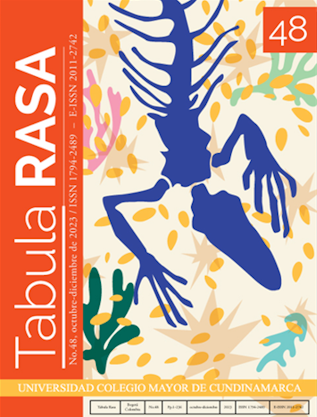Del sistema mundial capitalista al sistema mundial tecno-feudal: un análisis decolonial
From the Capitalist World-System Towards the Technofeudalist World-System: A Decolonial Analysis
Mostrar biografía de los autores
Desde inicios del siglo XX, el sociólogo Immanuel Wallerstein (2000) venía pronosticando que el sistema mundial capitalista estaba en decadencia y se comenzaba a transformar en otro tipo de sistema, pero sin especificar cuál sería. Ahora, varios economistas le han puesto nombre al nuevo sistema económico: el tecnofeudalismo. Sin embargo, tal y como señalaba el mismo Wallerstein y uno de sus discípulos Ramón Grosfoguel, un análisis puramente económico del sistema mundial sería reduccionista, economicista e incluso eurocéntrico. Por tanto, en este artículo se pretende describir las distintas heterarquías del nuevo sistema y detallar una dialéctica marxista decolonial acerca de cómo está construido este sistema.
Visitas del artículo 68 | Visitas PDF 38
Descargas
- Bautista Segales, J. J. (28 de febrero del 2020,). Marx y la transmodernidad Parte 2. [YouTube] https://www.youtube.com/watch?v=Zdbl4O7FoRw&t=2341s
- Grosfoguel, R. (2022). De la sociología de la descolonización al nuevo antiimperialismo decolonial. Akal.
- Habib Gómez, Z. (2021). Hacia la descolonización de derechos humanos y el feminismo. Tabula Rasa, 38, 227-246. https://doi.org/10.25058/20112742.n38.11
- Hinkelammert, F. (2018). Totalitarismo del mercado. El mercado capitalista como ser supremo. Ediciones Akal.
- Huntington, S. P. (1997). The clash of civilizations and the remaking of world order. Simon and Schuster Inc.
- Kontopoulos, K. (1993). The Logic of Social Structures. Cambridge University Press.
- Malthus, T. R. [1798] (2018). An essay on the principle of population. Yale University Press.
- Marx, C. (1976). El capital. Crítica de la economía política. Vol. 1. Fondo de Cultura Económica.
- Marx, K. (1959). Economic and Philosophic Manuscripts of 1844. Progress Publishers.
- Morozov. E. (2022). Crítica a la razón tecnofeudal. New Left Review, 133/134, 37-88.
- Varoufakis, Y. (16 de mayo de 2021). Techno-Feudalism & the End of Capitalism-interviewed by Alice Flanagan for Now Then. Now Then. https://www.yanisvaroufakis.eu/2021/05/16/techno-feudalism-the-end-of-capitalism-interviewed-by-alice-flanagan-for-now-then/
- Wallerstein, I. (2011). Capitalist Agriculture and the Origins of the European World-Economy in the Sixteenth Century. University of California Press.
- Wallerstein, I. (2000). Globalization or the Age of Transition? A Long-Term View of the Trajectory of the World System. International Sociology, 15(2), 251–267.
- Wolin, S. (2017). Democracy Incorporated. Managed Democracy and the Specter of Inverted Totalitarianism. Princeton University Press.
- Wrigley, E. A. (2018). The Preventive Check and the Poor Law. The Malthusian Model and Its Implications. En T. R. Malthus. An essay on the principle of population (pp. 516-533). Yale University Press.
- X, M. (2015). The Autobiography of Malcolm X. Ballantine Books.




